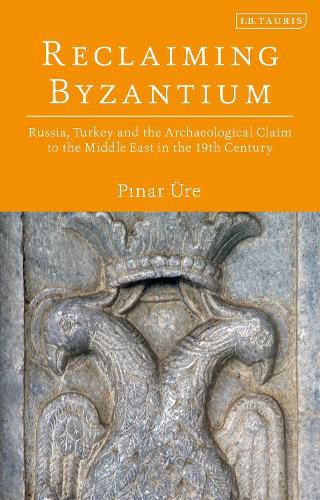Readings Newsletter
Become a Readings Member to make your shopping experience even easier.
Sign in or sign up for free!
You’re not far away from qualifying for FREE standard shipping within Australia
You’ve qualified for FREE standard shipping within Australia
The cart is loading…






There is a long-held feeling in Russia that Moscow is the true heir to the Christian Byzantine Empire. In 1894, Imperial Russia opened one of the world’s leading centres for Byzantine archaeology in Istanbul, the Russian Archaeological Institute - its purpose was to stake the claim that Russia was the correct heir to ‘Tsargrad’ (as Istanbul was referred to in Russian circles).
This then is the history of that institute, and the history of Russia’s efforts to reclaim its Middle East - events since in the Crimea, Syria and Georgia are all, to some extent, wrapped up in this historical framework. Ure looks at the founding of the Russian Archaeological Institute, its aims, and its place in the ‘digging-race’ which characterised the late Imperial phase of modern history. Above all, she shows how the practise of history has been used as a political tool, a form of soft power .
$9.00 standard shipping within Australia
FREE standard shipping within Australia for orders over $100.00
Express & International shipping calculated at checkout
There is a long-held feeling in Russia that Moscow is the true heir to the Christian Byzantine Empire. In 1894, Imperial Russia opened one of the world’s leading centres for Byzantine archaeology in Istanbul, the Russian Archaeological Institute - its purpose was to stake the claim that Russia was the correct heir to ‘Tsargrad’ (as Istanbul was referred to in Russian circles).
This then is the history of that institute, and the history of Russia’s efforts to reclaim its Middle East - events since in the Crimea, Syria and Georgia are all, to some extent, wrapped up in this historical framework. Ure looks at the founding of the Russian Archaeological Institute, its aims, and its place in the ‘digging-race’ which characterised the late Imperial phase of modern history. Above all, she shows how the practise of history has been used as a political tool, a form of soft power .